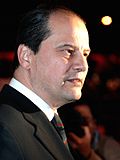| |||||||||||||||||||||||||||||||||
All 17 regional presidencies All 1,757 regional councillors All 153 territorial councillors | |||||||||||||||||||||||||||||||||
|---|---|---|---|---|---|---|---|---|---|---|---|---|---|---|---|---|---|---|---|---|---|---|---|---|---|---|---|---|---|---|---|---|---|
| |||||||||||||||||||||||||||||||||
 Second round results by region. The Republicans and Union of Democrats and Independents Socialist Party Regionalists Miscellaneous left | |||||||||||||||||||||||||||||||||
Regional elections were held in France on 6 and 13 December 2015. At stake were the regional councils in metropolitan and overseas France including the Corsican Assembly and inaugural seats in the Assembly of French Guiana and Assembly of Martinique, all for a six-year term. The Departmental Council of Mayotte, which also exercises the powers of a region, was the only region not participating in this election, having already been renewed on 2 April 2015. There were 18 regional presidencies at stake, with 13 in mainland France and Corsica, as well as 5 overseas. Though they do not have legislative autonomy, these territorial collectivities manage sizable budgets. Moreover, regional elections are often taken as a mid-term opinion poll.
Contents
- Voting system
- Opinion polls
- National results
- First round
- Second round
- By region
- References
- External links
These elections were the first to be held for the redrawn regions: the 27 regions of France were amalgamated into 18, this went into effect on 1 January 2016. [1] [2]
The election saw a huge swing away from the centre-left Socialist Party, as well as a small swing to the centre-right Republicans. However, there was a double-digit swing to the right-wing National Rally in both the first round and the second round. Despite this, National Rally did not win any regional presidencies.



